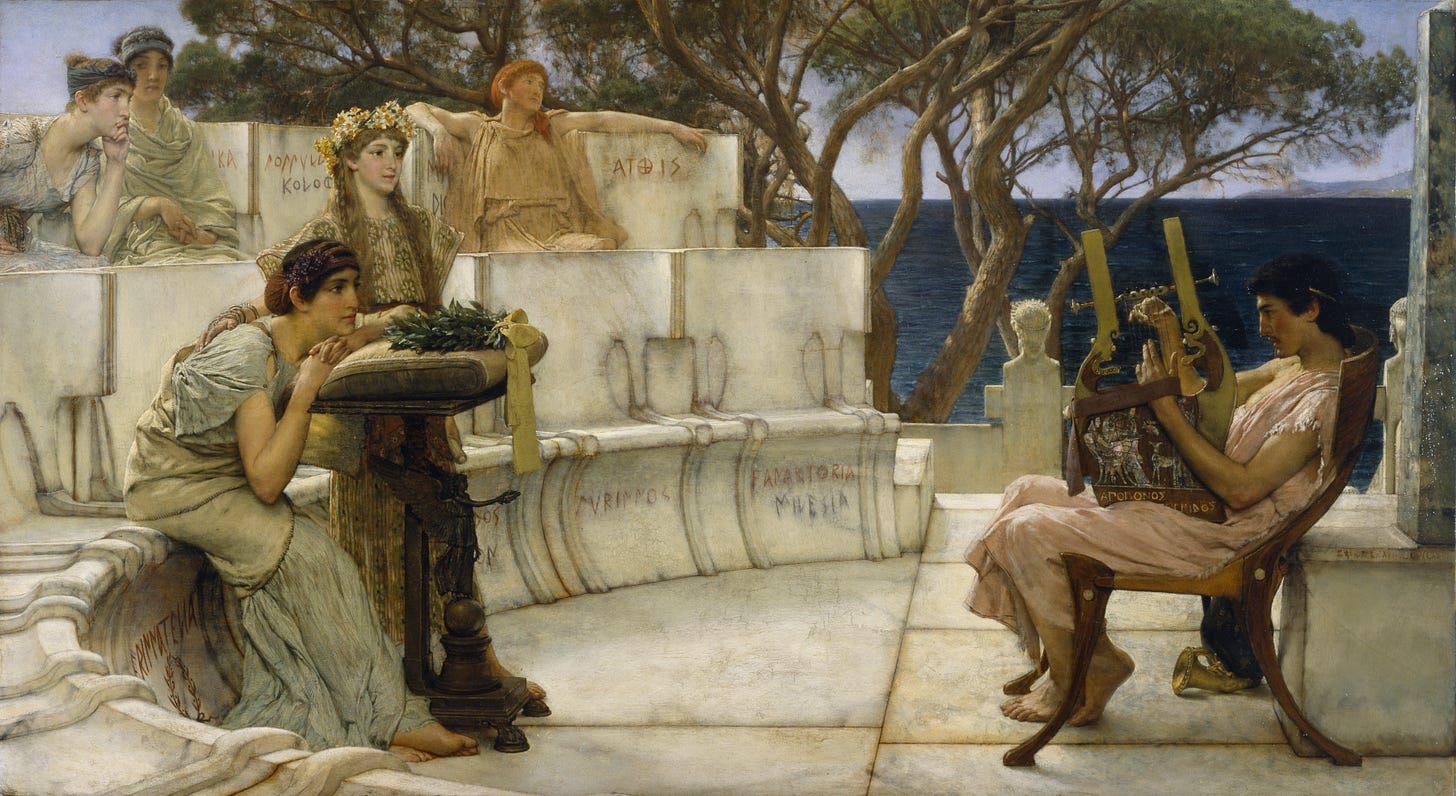Welcome to Extra Muros, your home for writing that will encourage, inform, and facilitate your quest to educate yourself while remaining “beyond the walls” of our dying universities. If you like what you see, please bookmark, share, and subscribe.
On 14 June 2023, the Wall Street Journal published a commentary commending bureaucrats in Georgia and Arkansas for adopting rules that require inmates of the public schools of those states to memorize pieces of poems, plays, and speeches. Seven days later, the same newspaper published a letter, written in response to this commentary, that told the tale of John Jamieson, an autodidact born in Scotland in 1890, who “could recite classical speeches, long poems, or entire acts from Shakespeare’s plays, and always had an appropriate quote.”
Alas, the news conveyed in the original opinion piece is not as good as the lead ("new standards in Georgia and Arkansas will require students to recite great poems or speeches”) suggests. In addition to lines from Shakespeare and portions of the Gettysburg Address, the list of items to be learned by heart by young Georgians and Arkansans will include “We Be Cool” and portions a speech delivered in 1963 by America’s most celebrated plagiarist. To put things another way, some of the noblest lines ever composed by speakers of the English language will be keeping company with a great deal of “jive talking” (in both senses of that term.) On a happier note, the story of Mr. Jamieson, brought to light as a result of the aforementioned op-ed, provides a model that self-directed learners of the present century might want to emulate.





Poetry is a database of pre-digested zingers ready to go. On that basis alone, memorizing them can be a good investment.